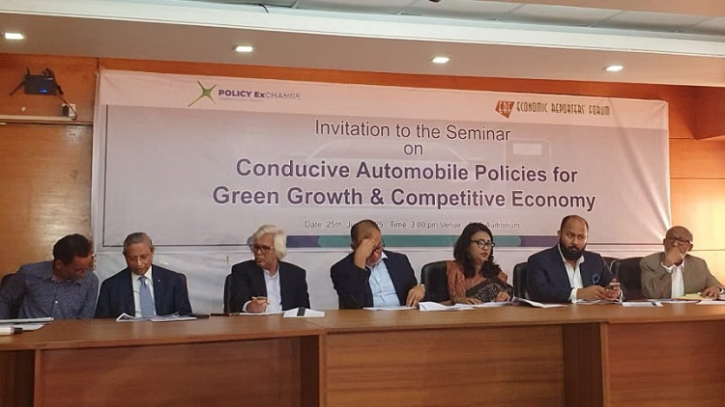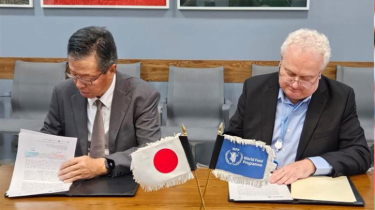Commerce Adviser Criticizes Massive Waste in Public Projects, Calls for Reforms in Investment

Published : 23:08, 25 June 2025
Commerce Adviser Criticizes Massive Waste in Public Projects, Calls for Reforms in Investment Planning
Commerce Adviser SK Bashir Uddin has expressed deep concern over what he described as the extensive misallocation of public resources through the implementation of numerous superfluous development projects over the past 15 years in Bangladesh. Speaking at a policy workshop titled “Conducive Automobile Policies for Green Growth and a Competitive Economy,” jointly hosted by the Economic Reporters’ Forum (ERF) and the Policy Exchange of Bangladesh at the ERF auditorium in Dhaka, the adviser emphasized that these projects—many of which were funded through foreign assistance—have failed to produce tangible socio-economic outcomes, despite significant financial investment and in some cases reaching up to 80 percent completion.
He remarked that “thousands of crores of taka” have effectively been wasted on initiatives that lacked clear feasibility, proper planning, or measurable impact, undermining both economic efficiency and public trust. Bashir endorsed the scrapping of such projects, regardless of their funding source or current implementation status, arguing that their continuation would further exacerbate fiscal mismanagement and opportunity costs. Nonetheless, he acknowledged the obligation to fulfill debt repayment obligations for foreign-funded projects, stressing that international financial commitments must be honored to preserve Bangladesh’s credibility with development partners and lending agencies.
While Bashir refrained from naming specific projects or ministries responsible for the inefficiencies, his comments align with growing concerns among economists and governance experts about the lack of robust project appraisal mechanisms and cost-benefit analyses in Bangladesh’s public investment portfolio. According to the World Bank and IMF, countries like Bangladesh that are transitioning toward middle-income status face heightened risks of debt distress and institutional inefficiencies if public investment management frameworks are not significantly strengthened.
Furthermore, the phenomenon of “white elephant projects”—infrastructure or development initiatives with disproportionately high costs and minimal returns—has been widely documented in public finance literature. Such projects often result from political motivations, weak procurement oversight, or insufficient stakeholder consultation, leading to chronic cost overruns, delays, and underutilized assets.
This critique by the commerce adviser may reflect a broader call for a reassessment of Bangladesh’s public sector investment strategies, especially as the country aims to align its development trajectory with the UN Sustainable Development Goals (SDGs) and the government’s Perspective Plan 2041, which envisions a knowledge-based and inclusive economy.
The adviser’s remarks underscore the urgent need for a shift toward evidence-based policymaking, enhanced accountability mechanisms, and the institutionalization of rigorous monitoring and evaluation systems to ensure the efficient use of public funds and long-term fiscal sustainability.











